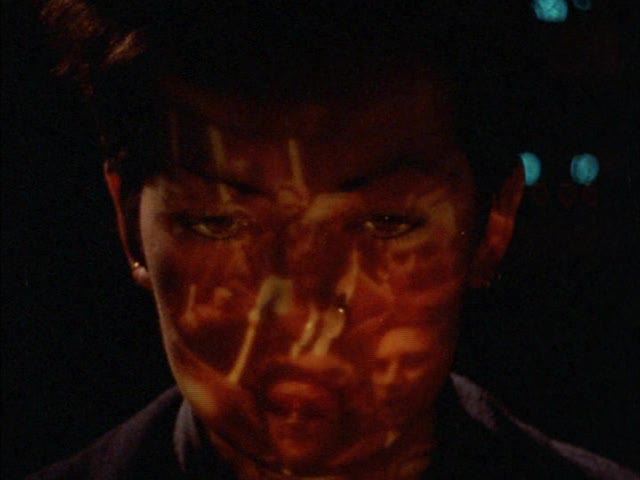While moving on to the new readings, I have also been digging deeper into some of last week’s materials. And Chris Marker’s work has been a thread that led me to surprising connections – a definitive experience of being in a small world network.
As one node of the network, there is a great interview, originally in Libération, and available here as an English translation. It was done in 2003 when La Jetée and Sans Soleil were released on DVD, and is both deep and funny.
Marker talks about time, history, media… quotes Godard: “at the cinema, you raise your eyes to the screen; in front of the television, you lower them”; before confessing that he has been guilty himself of lowering his eyes to his iBook, to watch the occasional classic.
The war which provides the bleak images at the beginning of La Jetée casts a shadow throughout the interview. I am reminded of my thoughts while watching the film. There was no need for sets or special effects to create these shots of destructed buildings. All it took was walking around one of the many cities left in ruins.
Regarding La Jetée’s influence there is a strong sense of humility and refusal to own or control the work: “I photographed a story I didn’t completely understand. It was in the editing that the pieces of the puzzle came together, and it wasn’t me who designed the puzzle. I’d have a hard time taking credit for it. It just happened, that’s all.”
He mentions Terry Gilliam’s film with appreciation, and a Japanese bar created in honor of the work: “To know that for almost 40 years, a group of Japanese are getting slightly drunk beneath my images every night – that’s worth more to me than any number of Oscars!”
And then there is Bowie, a big fan of La Jetée apparently, sent on his own temporal journey in Jump They Say (look for the iconic eyemask at 1:58).
I watched a few more works by Marker and came upon 2084 which seems particularly relevant for the course. Marker meditates on media, technology, society and unions. He imagines three potential futures we might evolve towards:
- The grey hypothesis: A bland society which lies to itself, pretends that all is well to hide its fears.
- The black hypothesis: A world ruled by “techno-totalitarians” where “technique has replaced ideologies”.
- The blue hypothesis: Technology and media as potential tools to re-invent the world.
The work is visionary and paints possibilities that feel now very familiar. The black hypothesis foreshadows the ideas developed by Bogost and is a stark reminder of technology’s potential use for power and control. But Marker is no simple Luddite and I appreciate his balanced vision, seeing technology as a possible tool for transformation and imagination as well.
Visually there are striking shots of moving images projected on faces and hands – a reversal of Tony Oursler’s uncanny puppet heads. The faces are looking down, human canvases catching hypnotic streams of images.

To finish on a light note, Chris Marker – a true visionary – is also credited by some as the inventor of the cat video…
Add yours Comments – 1
Thank you for this Yves. One of the exciting things for me about watching and engaging with a work like La Jetée is to be able to trace its influence in more contemporary works. I also appreciate that you were able to make another Bowie connection. I hadn’t seen that particular homage, where Bowie recreates himself again as a falling man at Orly Airport…. the Oursler connection again shows traces of influence and help us understand how Bowie and Oursler may have come together.
For me, ‘Sans Soleil’ was illuminating in its critique of more ethnographically-oriented images and filmic representations, and crosses disciplinary boundaries in an interesting way. This is another reason that I hope that this seminar works well as a boundary space for interdisciplinary researchers at SIAT–we all have ways of connecting to themes and ideas about technology, art, and design, no matter what our specialized area of research might be.